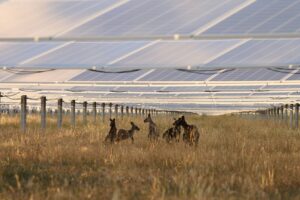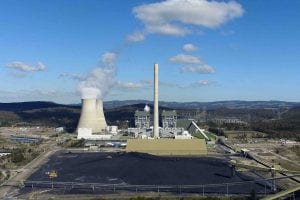The March 2017 closure of the 1.5GW Hazelwood brown coal power plant in Victoria’s Latrobe Valley will have a “negligible impact” on retail electricity prices, independent analysis has found.
Modelling on the potential power price impacts of Hazelwood’s closure, prepared for the state government by Carbon + Energy Markets, indicates that retail bills would increase by less than 4 per cent (3.98%) in 2017 – compared to a no closure scenario.
According to the report’s author, Bruce Mountain, this meant bills would rise by about $44 in 2017 and about $35 in 2018, compared with the “no closure” scenario.
“By my own price projections, based on the wholesale market, retails prices would increase about 4 per cent, and then fall away again, by 2020, to 1.5 per cent higher with closure than no closure,” Mountain told RenewEconomy in a telephone interview.
“When you compare this with what’s happening with retail offers at any given point in time,” he added. “there is not any major impact.”
This, explains, Mountain, is because, for households, the wholesale component of electricity bills is less than one third of each bill, while retailers charge a much bigger portion.
So while on the wholesale level the cost for larger energy users could be significant, for households the impact will be “negligible”, he said.
“It’s important to remember that the range (of retail energy offers) from the most expensive to the cheapest… is more than a factor of two,” Mountain added. “So this change in the context of the retail market is simply not terribly significant at all.”
Of course, that has not been the message from some news outlets and commentators, some of which have claimed the cost of Hazelwood’s closure at around a 25 per cent jump in annual electricity costs.
But Mountain said claims of a 25 per cent retail impact, potentially based on old modelling by Frontier Economics, was “not at all credible” – “there is absolutely no credibility to that at all,” he said.
Victorian premier, Daniel Andrews, was equally scathing about the “pedalling” of redundant figures to breed fear over the impact of the coal plant’s closure – both in terms of electricity prices and supply.
“There is an oversupply of electricity across the national grid, and when you look at what Engie said in (its) statement about ‘market conditions,’ that is what it’s talking about,” Andrews told reporters.
“We’ve had discussions over the future of Hazelwood with Engie for some months now,” he said. “They were determined to make this decision because it is a decision consistent with their global outlook.”
On the impact to retail electricity prices, Andrews said it seemed some in the mainstream press based their numbers of “some pretty wild and inaccurate modelling” that was “old” and “redundant”.
“The numbers are more in the order of 4 per cent or 0.85c a week,” he said.









